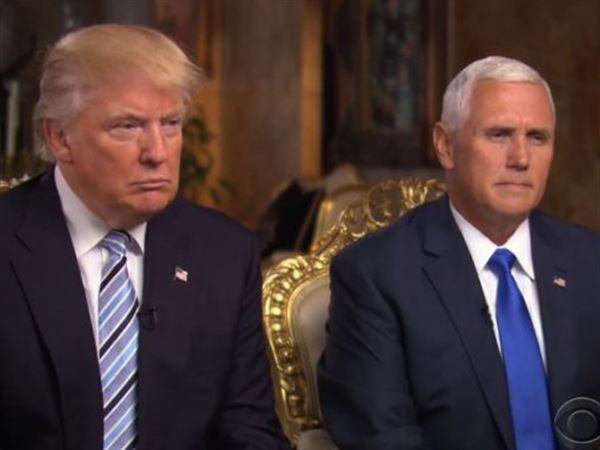AL RUFAIT, Iraq -- The American and Iraqi soldiers came to this village of grape farmers and tribal traditions in the dark in search of a suspected insurgent, and left in the morning sunlight.
In the hours between, however, the operation went horribly wrong: the suspect eluded capture, but three men, including a tribal elder, were killed and five people were wounded, among them two young girls.
The next day, on Sunday morning, the villagers submitted to the grief rituals familiar to Iraqi life. Young men were erecting a tent for the three-day funeral that would begin later in the day. A mother displayed the bloodied garment her son, a local teacher, had been wearing when he was shot dead. Inside, a woman cried and wailed about her dead brother: "Why did you leave me?"
The men mostly wanted to get answers and to vent their anger against the Americans, even though the operation had been led by Iraqi security forces.
The raid and the deaths prompted outrage on Monday in Parliament and in the local press, and coincide with a continuing debate about the future role of the United States military here. They are likely to provide another rallying point for those opposed to an American troop presence beyond the end of the year, when the military is required, under current agreements, to withdraw completely.
But they also underscore how nearly a year after President Obama declared the official end of the combat mission, American soldiers are still deeply engaged in the fighting on two fronts: against Sunni insurgents in the Sunni-dominated areas north of Baghdad like Salahuddin Province, where this village is located, and against Shiite militias in the south, which are responsible for a sharp increase in combat-related deaths of American soldiers.
It is a war fought largely beyond public scrutiny, and is visited upon small villages and urban neighborhoods almost nightly, when Iraqi and American Special Forces teams descend on homes in search of weapons and insurgents. Shots are rarely fired, yet sometimes, as happened early Saturday in this Sunni village just south of Saddam Hussein's hometown of Tikrit, there are lethal consequences.
"The war is not over," said Sheik Youseff Ahmad, a leader of the tribe Al Rufait, which he said has farmed the land here for hundreds of years.
The leading crops are grapes, wheat and oranges, but mostly grapes, and in a successful year a farmer can earn more than $42,000. On this day, the men brandished evidence of the nocturnal raid. One held up a shell casing. Another, the pin from a grenade. Tangled in the brush was a piece of a black plastic handcuff, made in New Hampshire.
Sheik Ahmad and his tribesmen condemned the operation, which the American military said was aimed at a suspected member of an insurgent group, Al Qaeda in Iraq, and carried out with an Iraqi judicial warrant.
Predictably, in the fog-of-war aftermath of the raid, competing stories emerged. Sheik Ahmad had first said that some villagers opened fire when the raid began, thinking they were under attack by insurgents. The American military verified this, yet the next day residents said they had never fired weapons.
In an e-mail statement, a military spokesman in Baghdad wrote, "As the team of Iraqi forces with U.S. advisers came near the house, they received fire and fired back in self-defense." The spokesman said there had been "an unknown number of casualties and the incident is under investigation by the Iraqi government."
When the raid began shortly after 1 a.m., villagers said 16 people, including many children, were sleeping on the roof -- a common practice in Iraq to escape the heat and shortages of electricity to power air-conditioners -- of the first house the American and Iraqi soldiers went to. The soldiers apparently took fire from the roof, and responded by tossing a grenade. "Immediately thereafter, the lethal fires ceased," wrote the American military spokesman.
The next day the roof was pockmarked from the impact of the grenade, and footprints in blood smeared the floor. Two young girls had been wounded by shrapnel, villagers said.
Villagers also said that when the operation was finished -- about six hours after it began, they said -- they discovered the body of their tribal elder, Sheik Hameed Hassan, who was in his mid-60s, blindfolded and handcuffed with his arms behind his back.
The sheik's son, Majid Hameed, said he watched through a window as his father was handcuffed and led away from the house, an account that raises troubling questions about the manner in which his father was eventually killed. (When asked about this version of events, the military spokesman wrote, "The specifics of what occurred during the operation remain under investigation.")
"He was a peaceful man," said the son, who is 19. "He was our leader. It was a nightmare to me. I can't stop thinking about what happened. I was sleeping, and all of a sudden gunshots, bombs, grenades. And now my father is gone."
The man sought by the American and Iraqi Special Forces units was not found, but "two suspected terrorists were detained at the scene and are being questioned as to their involvement with the warranted individual," the American military said in its statement.
Local officials said that while it may have once harbored insurgent sympathies, this village on the outskirts of Balad, near a big American base that is headquarters for Special Operations forces, is not a hotbed of the still-simmering Sunni insurgency.
"It is a peaceful village," said Mohammad Hassan, the head of the security committee in the Salahuddin provincial council. "There are no wanted men there, plus they have been very helpful to our forces and the Awakening by giving us information about Al Qaeda members." (The Awakening was the movement that blossomed in 2007 in which former insurgents switched sides to fight alongside the Americans.)
Convulsed by grief and anger, the villagers denounced the style of democracy left in the wake of America's war. "This is the freedom they brought us?" said one man among a crowd outside the fallen sheik's house.
But the villagers and local officials vowed to pursue a tool of recourse deeply ingrained in American life: the lawsuit.
"We are going to sue the Americans for it," said Mr. Hassan. "We will follow them with the legal process and the courts."
First Published: August 2, 2011, 4:00 a.m.














